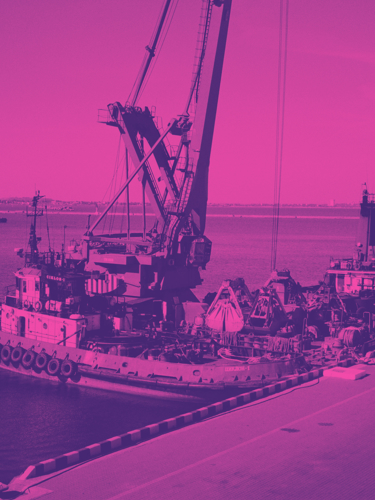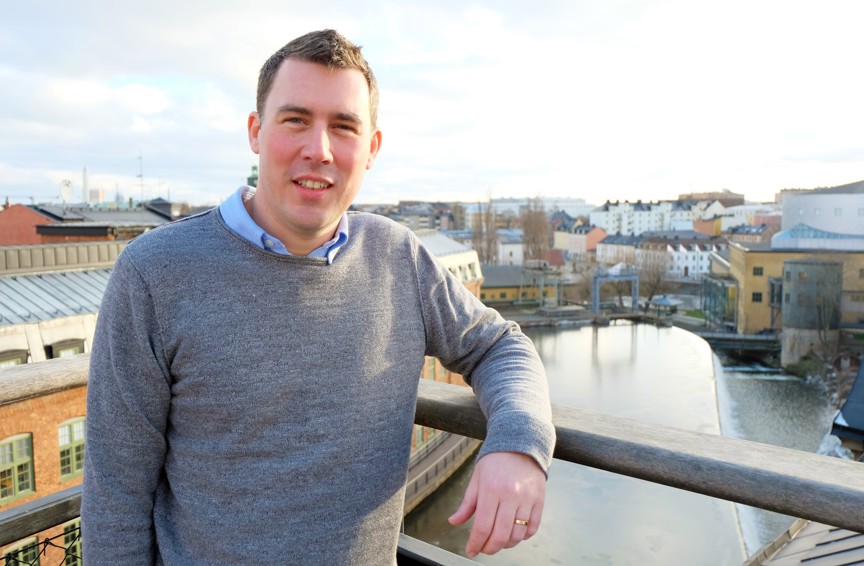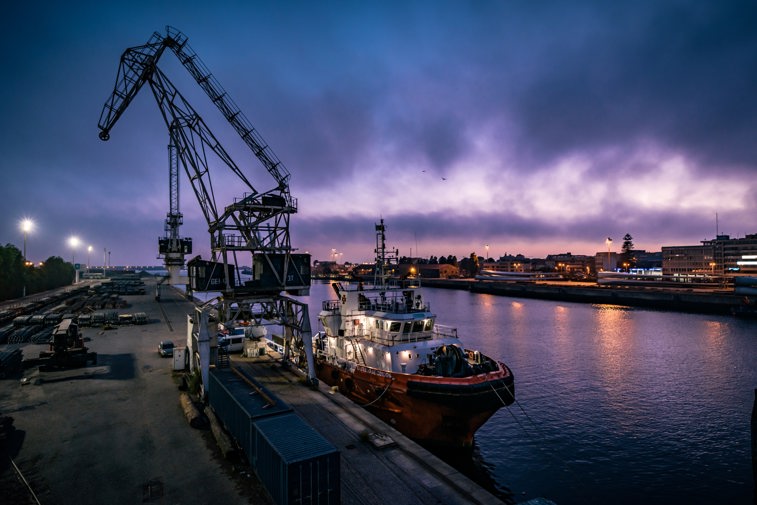The trainees' report led to greener transport

Alice Åkerlund and Anton Rosdahl did their Tekniksprång at the Swedish Maritime Administration in Malmö. During their internship, they got to work on a special project that had been put on hold, waiting for someone who had time to get to grips with the work. Now their report has become the basis for a future investment for the Swedish Maritime Administration, and an opportunity for greener transport.

During their technological leap at the Swedish Maritime Administration, Anton Rosdahl and Alice Åkerlund were commissioned to produce a feasibility study to investigate the possibility of the Swedish Maritime Administration purchasing an electric hovercraft. This is after an employee came up with a proposal to be able to use the hovercraft for pilot transport in Luleå and Skellefteå.
"The initiative had been discussed internally, but there was no resource available to start the work. When Anton and Alice were in place, we were able to define the assignment so well that it was deemed possible for the trainees to be able to solve the task with the support of a supervisor," says supervisor Magnus Eriksson.

Working on the report meant a lot of new challenges for Anton and Alice, and insights that they didn't predict before they started. They conducted several interviews with employees who work as boatmen in the ports where there was a particular need for the new hovercraft.
"It was a bit challenging trying to do interviews with people who aren't available at any time," says Anton. "People who work 24/7 also have a long time off, so we had to wait for a response. We relied heavily on others to move our work forward."
Opportunities and knowledge
The work of producing the basis for the investment also opened up for new knowledge.
"We used statistics from the Swedish Maritime Administration's logbooks to calculate how much could be saved by replacing some boats with hovercraft. We also had meetings with the Fossil Free Fleet, which helped us make calculations on CO2 emissions," says Alice.
The work that Alice and Anton have put into this has not only led to a well-prepared report, according to Magnus, but they have also identified measures that are currently lacking in the Swedish Maritime Administration's operations, including the introduction of guidelines for when hovercraft should be used for pilot transport.
"This report has shown us the opportunity to reduce our fuel consumption by thousands of litres of diesel a year. The report will also form the basis for a decision on whether or not to start a procurement of a new hovercraft," says supervisor Magnus.
Future
When asked if they would consider returning to the Swedish Maritime Administration, Anton replies that the job as a Boatman could have suited him, especially since the working hours with 24/7 on and 24/7 on would have been suitable. But the lack of training for boatmen in Skåne makes the choice a little more difficult.
"We both know that we want to continue our studies later, but we're not sure about what yet. Tekniksprånget has been very rewarding and has given good insight into what different engineering programmes can provide, and we have a more positive view of the engineering profession after our internship than we did before."

Läs mer om Sjöfartsverket
Nyfiken på att veta mer om Sjöfartsverket och vad du som Tekniksprångare kan få göra där?